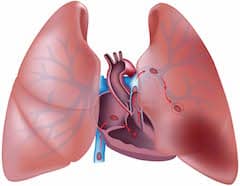Episode 21: Pulmonary Embolism
In this episode on Pulmonary Embolsim we have the triumphant return of Dr. Anil Chopra, the Head of the Divisions of Emergency Medicine at University of Toronto, and Dr. John Foote the CCFP(EM) residency program director at the University of Toronto. We kick it off with Dr. Foote's approach to undifferentiated dyspnea and explanation of Medically Unexplained Dyspea ('MUD') and go on to discuss how best to develop a clinical pre-test probability for the diagnosis of pulmonary embolism using risk factors, the value of the PERC rule, Well's criteria and how clinical gestalt plays into pre-test probability. Dr. Chopra tells about the appropriate use of D-dimer to improve our diagnostic accuracy without leading to over-investigation and unwarranted anticoagulation. We then discuss the value of V/Q scan in the workup of PE, and the pitfalls of CT angiography. A discussion of anticoagulation choices follows and the controversies around thrombolysis for submassive PE are reviewed.

